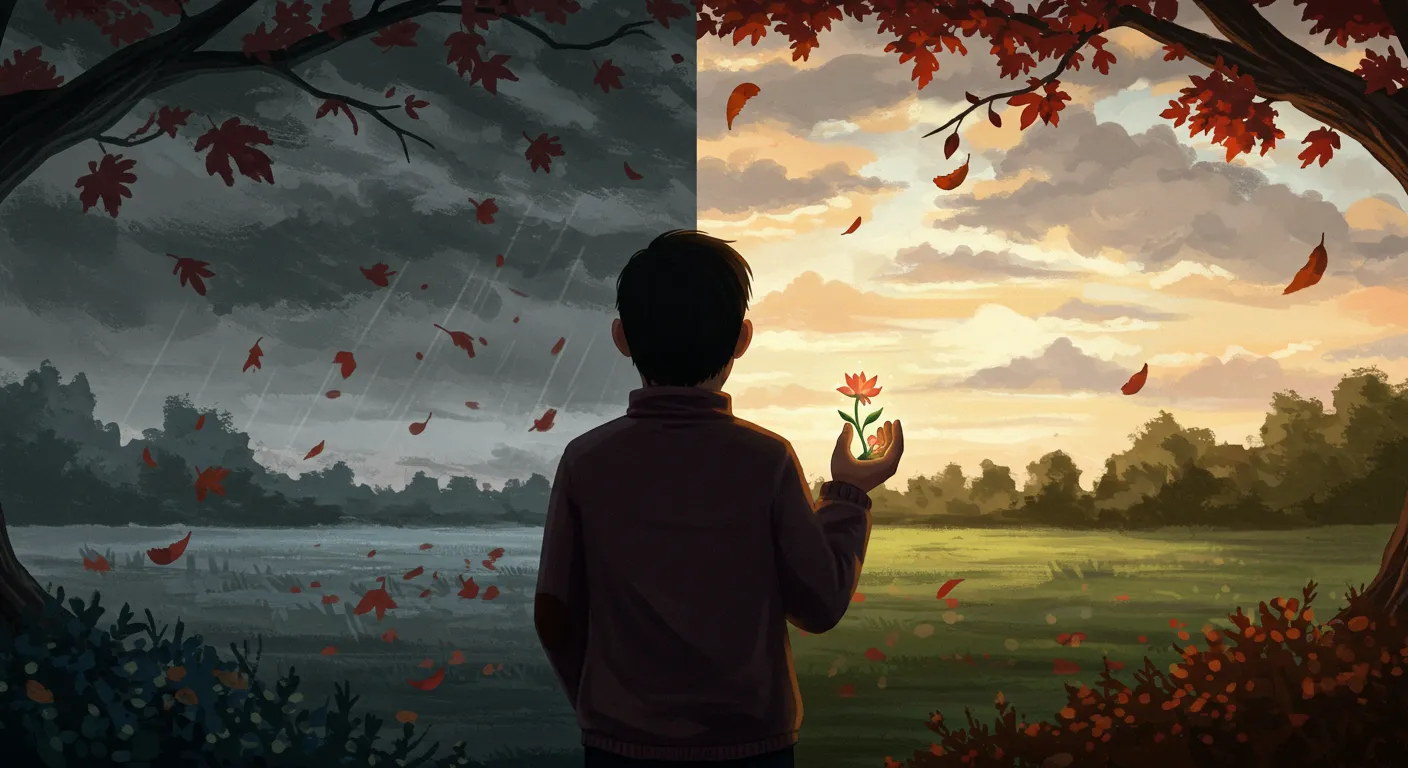This is a blog post written to encapsulate Alex Hormozi's thoughts on mental resilience, embracing difficult things, and developing mental toughness. His video can be found by clicking this link.
Words from Alex Hormozy himself:
I’ll be honest: this year has knocked me flat more than once. As a business owner, you juggle endless responsibilities, and sometimes—despite all your achievements—you’re blindsided by setbacks that defy logic. There’s a curious art to building mental toughness that goes way beyond cheesy catchphrases or forced positivity. Today, I’m breaking down a realistic, battle-tested framework for navigating the hardest seasons—without losing your mind, or your sense of humor.
The Strange Math of Hard Days: Reframing Reality When It All Goes South
If there’s one thing I’ve learned as a business owner, it’s that mental toughness isn’t about never having hard days. It’s about how you respond when those days show up—unexpected, uninvited, and sometimes, overwhelming. This year, I’ve faced some of the hardest days of my life. Maybe you have too. But I’ve discovered a strange, almost mathematical truth about tough times that’s changed the way I see setbacks and challenges.
The 10/80/10 Rule: It’s Not Personal, It’s Probability
Think about the last 100 days of your life. If you’re like most people, about 10 of those days were truly great—smiley-face days. Eighty were neutral, nothing special, just life moving along. And 10? Those were the rough ones. This isn’t a personal failing or a sign you’re doing something wrong. It’s just the natural distribution of life. Building resilience starts with accepting that some days will be tough, and that’s okay.
Here’s the kicker: those bottom 10% days are what make the top 10% so meaningful. Without the hard days, the good ones wouldn’t stand out. Overcoming challenges isn’t about eliminating struggle—it’s about learning to see the value in it.
When Life Throws a Curveball: My $10M Lesson
Earlier this year, I got hit with a shock: a multi-eight-figure bill, due in 72 hours. That’s right—over $10 million, out of nowhere. I had the money, but I’d planned to use it for something else. The moment I got the news, everything stopped. My mind raced. But after the dust settled and the bill was paid, I realized something surprising. My actual life hadn’t changed. I still ate the same food, lived in the same place, worked the same way. The only thing that changed was my expectation of the future.
This was a real-world test of emotional regulation and growth mindset. I could choose to punish myself for not seeing it coming, or I could reframe it as part of my journey. Research shows that most of our suffering is in our minds, not in reality—perspective is everything.
Reframing Reality: Wisdom from the Greats
When I’m struggling, I lean on the words of those who’ve faced far worse. Viktor Frankl, who survived the Holocaust, wrote:
"He who has a why to live for can bear almost any how."
That “why” is the reframe. It’s the story you’ll tell yourself, and maybe others, about how you got through. Marcus Aurelius, the stoic emperor, reminds me:
"What are you so afraid of losing when nothing in this world belongs to you?"
We’re all just renting our chips—our resources, our time. None of it is truly ours to keep. And Mark Twain, with his trademark wit, nails it:
"I’ve lived through many terrible tragedies. Only some of them actually happened."
So much of our pain is imagined. Mental toughness is about letting go of what you can’t control, embracing impermanence, and focusing on the present moment. That’s how you build resilience—one hard day at a time.

Bite-Sized Victories: How Good Days Can Exist in Bad Seasons
When life feels like it’s coming at you from all sides, it’s easy to think you need a massive turnaround to feel better. But I’ve learned that waiting for a whole season to change is a recipe for frustration. Instead, I focus on racking up one good day at a time—even when everything else feels chaotic. This is one of those Habits That Build real resilience, and it’s a daily routine that’s saved me more times than I can count.
I don’t put big labels on things anymore. I just give myself a little grace and aim for a good day, even in a bad season. It’s a bite-sized victory. And if I can string enough of those together, suddenly the bad season feels a little less overwhelming. I start to see progress, even if it’s slow. That’s the heart of Personal Growth: not waiting for the storm to pass, but learning how to dance in the rain, one small step at a time.
My formula for a good day is simple—almost embarrassingly so. I eat with people I like. I lift with people I like. And I write something. That’s it. If I do those three things, I feel like I’ve earned my shower at the end of the day. It’s not about grand gestures or dramatic changes. It’s about Motivation Techniques that are so simple, they’re almost impossible to skip. These rituals anchor me, even when everything else is up in the air.
But here’s the nuance that took my good days to the next level: I stopped rushing. Research shows that not being in a constant time crunch allows the joy of these habits to fully emerge. When I eat, lift, or write without a clock ticking in the background, the quality of those moments skyrockets. It’s not just about what I do, but how present I am while doing it. This is where Positive Thinking and mindfulness really come alive. Studies indicate that savoring these moments amplifies both enjoyment and resilience, helping you weather tough seasons with a steadier heart.
Progress doesn’t always look dramatic. Bill Ackman, who faced lawsuits, divorce, and a $4 billion loss all at once, said it best:
“You just gotta make a little bit of progress every day. That’s it.”
It’s like compounding interest. You don’t see the change in a day or a week, but look back after thirty or ninety days and you realize you’ve moved the ball forward. That’s the magic of Daily Routine—little wins, compounded over time, can shift the entire tone of a tough period. Research backs this up: small, consistent habits build momentum that can outlast even the hardest seasons.
So, what’s your formula for a good day? Maybe it’s different from mine. The key is to create your own, reclaiming control in seasons that feel uncontrollable. Focus on the micro-moments. Build streaks of good days, even if the big picture still looks rough. That’s how you turn the tide—one bite-sized victory at a time.

Redefining Pain: Turning Obstacles Into Fuel for Growth
If you want to achieve something big, you’re signing up for pain and, honestly, a fair bit of boredom. That’s the price of ambition. The bigger the goal, the more discomfort you’ll face. I learned this firsthand in the early days of building my gym business. Imagine sharing a cramped house with six other people and four dogs, sand everywhere, dirty dishes piling up, and not enough room in the fridge for everyone’s food. Cooking was chaos. My bed was on the floor, and I slept with a fan blasting in my face just to drown out the noise. All this while taking home $20,000 a month—because every extra dollar went right back into the dream.
It sounds wild, but that grind, that chaos, and even the canine mayhem, built the mental toughness I needed. I didn’t realize it at the time, but those sacrifices were laying down the scar tissue I’d lean on later. Even when it all fell apart—when I lost everything—I didn’t go back to zero. You can only start from scratch once. Every setback after that adds to your vault of experience and resilience. That’s the real growth mindset: seeing every obstacle as a lesson, not a defeat.
There’s a powerful shift that happens when you link pain to purpose. Research shows that people can endure four times more pain when they believe it’s for someone they love, rather than just for themselves. Viktor Frankl wrote about this, and behavioral science backs it up. When you know why you’re suffering, the pain becomes bearable—even meaningful. Suddenly, it’s not just pain; it’s tuition for growth. It’s the price you pay for becoming the person you want to be.
“Give a man a purpose and the ability to achieve it, and he will crawl over broken glass with a smile.”
That quote sticks with me. The smile isn’t because the pain is gone—it’s because the pain means something. It’s a sign you’re moving toward your goal. In business and in life, comfort is usually the first thing to go. But if you can reframe the struggle as a necessary part of your journey, you unlock a new level of resilience. You start to see setbacks as stepping stones, not roadblocks.
Behavior change, too, isn’t just about grit. It’s about reinforcement. If you know that every tough day, every sacrifice, is getting you closer to your vision, it becomes easier to keep going. You’re not just enduring—you’re growing. And if people judge your choices or your lifestyle, you don’t have to catch every negativity ‘ball’ thrown your way. Their opinions don’t erase your experience or your progress.
Every time you face your fears, every time you get back up after a loss, you’re building mental toughness and personal growth. You’re sculpting yourself into someone stronger, wiser, and more resilient. The work works on you, even when the outcome isn’t what you hoped. That’s the real reward.

Wild Card Wisdoms: Embracing Unconventional Resilience Hacks
Some of the best lessons in emotional well-being and self-compassion don’t come from textbooks or business seminars—they come from the wild cards life throws at us. I’ve learned that resilience isn’t just about pushing through pain or hustling harder. Sometimes, it’s about letting go, reframing, and refusing to pick up what doesn’t belong to us in the first place.
Mark Twain once said, “I’ve lived through many terrible tragedies. Only some of them actually happened.” That quote hits home every time I find myself spiraling into stress about things that might never come to pass. Research shows that much of our psychological suffering is self-generated. We play out worst-case scenarios in our minds, and most of them never materialize. The real trick to stress management is learning to reset those expectations and focus on what’s actually in front of us.
Here’s something I remind myself: I get to decide how long I beat myself up after a setback. I ask, “Is this punishment really worth it?” Most of the time, it isn’t. Practicing self-compassion—giving myself a little grace—has been a force multiplier for my mental strength. I’ve realized that nothing in this world truly belongs to me. We’re all just stewards of our resources, our time, our energy. This perspective makes it easier to let go of losses and move forward with a positive mindset.
I’ve also learned that you don’t have to catch every rotten ball thrown your way. There’s a story from a divorce seminar that stuck with me: The speaker tossed a ball to someone in the audience and then asked them to imagine it was a steaming hot pile. “Why would you catch it?” he asked. That’s the wisdom I try to apply when internet critics or naysayers hurl negativity my way. Most of their harshness boils down to, “He lives his life in a way I would not prefer.” So why catch what doesn’t serve me?
'Just because someone hurls at you doesn't mean you need to catch it.'
On my hardest days, I focus on bite-sized victories. Even in a bad season, I can have a good day. Sometimes, it’s just about eating with people I like, lifting with friends, and writing something meaningful. If I can string enough good days together, the bad season starts to shift. And if I can’t have a good day, I look for good moments. Because, in the end, those moments are what I’ll remember.
Resilience, I’ve found, is as much about what you choose to let go as what you fight through. The work works on you more than you work on it. Every challenge, every setback, every criticism is an opportunity to practice emotional regulation and reinforce a positive, resilient mindset. So, when life throws its wild cards, embrace them. Let go of what isn’t yours. And remember—sometimes, the greatest strength is simply refusing to catch what doesn’t serve you.



